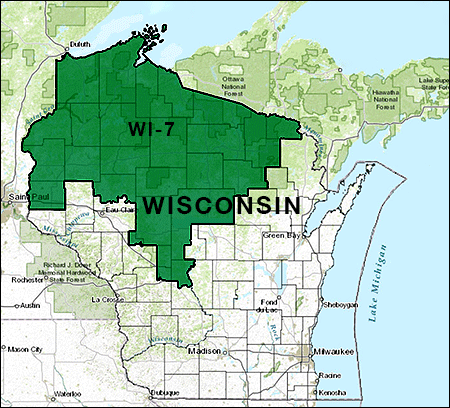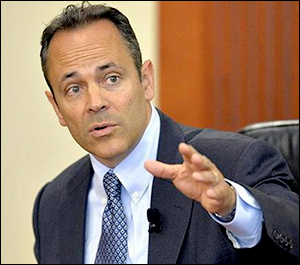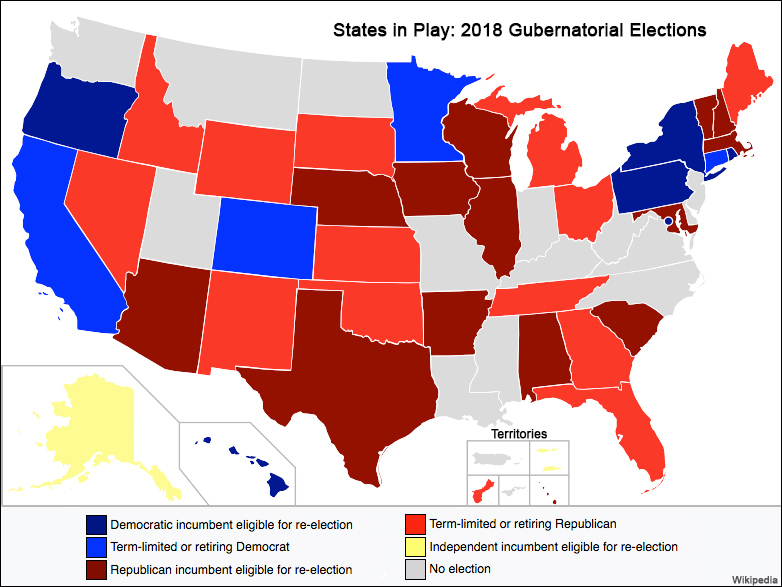
Wisconsin’s US 7th Congressional District
Aug. 28, 2019 — Five-term Wisconsin Rep. Sean Duffy (R-Wausau) announced Monday that he is resigning from Congress effective Sept. 23. Rep. Duffy indicated his reason for leaving mid-term is that his wife and his expectant child, their ninth, has already been diagnosed with challenging health issues.
Therefore, his 7th Congressional District will go to special election once Gov. Tony Evers (D) sets the schedule. The congressional vote will likely coincide with the state’s spring election, where statewide and district judges are on the ballot and many localities use the dates to hold their own elections. The Wisconsin calendar pinpoints the Spring Primary for Feb. 18, 2020, while the Spring General election will run concurrently with the Wisconsin presidential primary on April 7.
The Badger State’s 7th CD occupies a full quarter of the state’s land area, beginning on the shores of Lake Superior and stretching to Buckhorn State Park close to Wisconsin’s center. The district covers a large land mass and is populated with small towns spread throughout the 26 counties that it covers or touches. WI-7 contains 21 whole counties and parts of five others. Its largest city, Wausau, which is Congressman Duffy’s hometown, has just under 40,000 people.
The district’s electorate now votes solidly Republican but, before Rep. Duffy was elected in 2010, this seat remained in Democratic hands for 41 consecutive years in the person of former Rep. David Obey (D) who first won in a 1969 special election and retired in the 2010 cycle. The district’s pre-Obey history, however, was solidly Republican. A member of the GOP had represented the seat for 82 of its first 96 years of existence.
Since the Duffy resignation was unexpected, no potential successors are being discussed, but that situation will quickly change.




